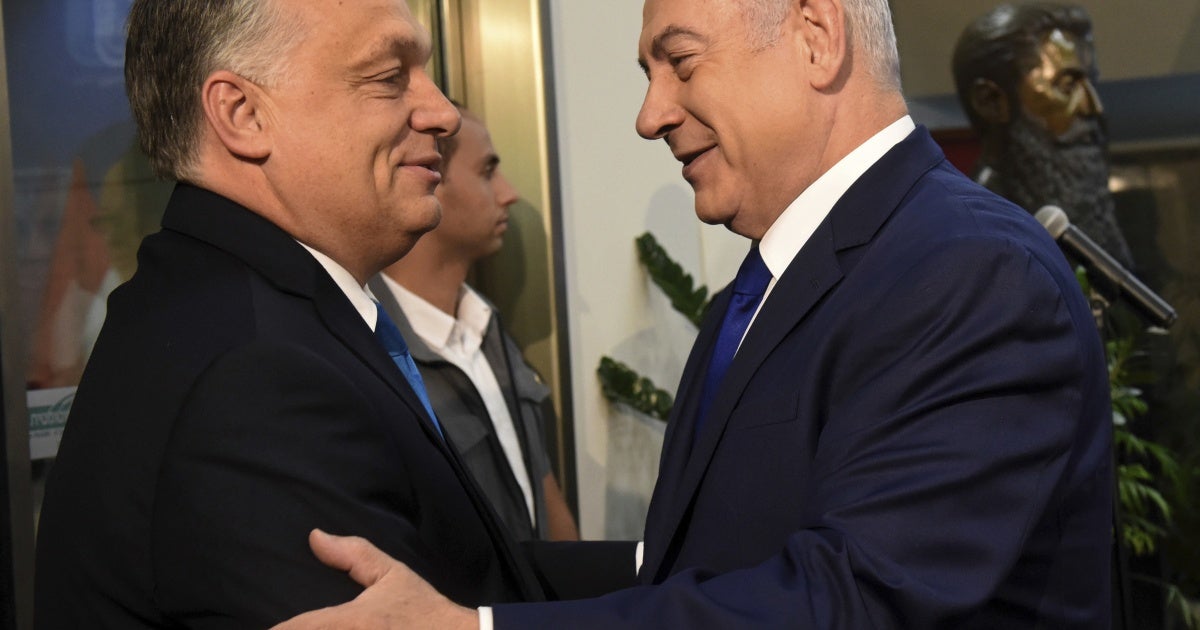Hungary Urged to Arrest ICC Fugitive Netanyahu
Hungary should deny entry to Israeli Prime Minister Benjamin Netanyahu or arrest him if he enters the country, Human Rights Watch said today. Netanyahu's office announced that he is planning to travel to Hungary on April 2, 2025, following an invitation by Prime Minister Viktor Orban.
Netanyahu is subject to an arrest warrant issued by the International Criminal Court (ICC) on November 21, 2024, when the court's judges issued arrest warrants against him and Yoav Gallant, his then-defense minister, for crimes against humanity and war crimes committed in the Gaza Strip from at least October 8, 2023. These include starving civilians, intentionally directing attacks against a civilian population, murder, and persecution. Human Rights Watch has documented war crimes, crimes against humanity, and acts of genocide committed by Israeli authorities in Gaza.
"Orban's invitation to Netanyahu is an affront to victims of serious crimes," said Liz Evenson, international justice director at Human Rights Watch. "Hungary should comply with its legal obligations as a party to the ICC and arrest Netanyahu if he sets foot in the country."
As an ICC member country, Hungary is obligated to cooperate in securing the arrest and surrender of any suspects who enter its territory. Without its own police force, the ICC relies on states to assist in arrests.
Regrettably, officials from the governments of several European Union member states, including France, Poland, Italy, Romania, and Germany have recently explicitly said that they would not uphold their obligations or refused to commit to enforce the court's warrant and arrest Netanyahu. Human rights activists and nongovernmental groups in Poland protested indications by the Polish government in January that Netanyahu would be welcome to visit the country without facing arrest.
All ICC members should uphold their obligations under the court's treaty, Human Rights Watch said. The EU's decision on the ICC commits the regional bloc to support cooperation with the ICC, including for arrests. The EU's leadership and other EU member states, along with other ICC member countries, should publicly call on Hungary and all ICC member countries to cooperate with the ICC by arresting Netanyahu should he visit their territories.
In May 2024, the ICC prosecutor requested five arrest warrants in relation to the Palestine investigation - those against Netanyahu, Gallant, and also against three senior Hamas leaders. The Office of the Prosecutor later withdrew the application against two of the Hamas leaders after they were confirmed to have been killed. In November 2024, the ICC judges decided to issue an arrest warrant against the remaining Hamas official, Mohammed Diab Ibrahim al-Masri ("Mohammed Deif"), at the same time it handed down the warrants against Netanyahu and Gallant. In February, following confirmation of Deif's killing, ICC judges terminated proceedings against him.
At the time the warrants were issued, Hungary's Foreign Minister Peter Szijjártó criticized the warrants as "shameful and absurd" and "unacceptable," and Orban announced his intention to invite Netanyahu to Hungary. Vera Jourova, then-EU justice commissioner, reminded Hungary that that would be an "obvious breach" of Hungary's obligations under the Rome Statute, the ICC's founding treaty, and damage Hungary's reputation.
When US President Donald Trump issued an executive order in February that authorized the use of sanctions against ICC officials, in a bid in part to thwart the court's case against Netanyahu, Orban announced his support for the US sanctions and called for a "review" of the country's relations with the ICC.
Since his 2010 electoral win, Orban and his government have shown increasingly blatant disregard for the rule of law and human rights. In more than 14 years, it has curbed judicial independence, restricted and harassed civil society, and undermined media independence. Hungary's worsening situation with democracy and rights led the EU to initiate a political enforcement process in 2018 under article 7 of the EU Treaty over the risk of Hungary's actions breaching fundamental EU values. Orban traveled to Moscow in July 2024 to meet with Russian President Vladimir Putin, himself subject to an ICC warrant for serious crimes in Ukraine.
"Allowing Netanyahu's visit in breach of Hungary's ICC obligations would be Orban's latest assault on the rule of law, adding to the country's dismal record on rights," Evenson said. "All ICC member countries need to make clear they expect Hungary to abide by its obligations to the court, and that they will do the same."
https://www.hrw.org/news/2025/04/01/hungary-arrest-dont-welcome-icc-fugitive-netanyahu
View Original | AusPol.co Disclaimer
